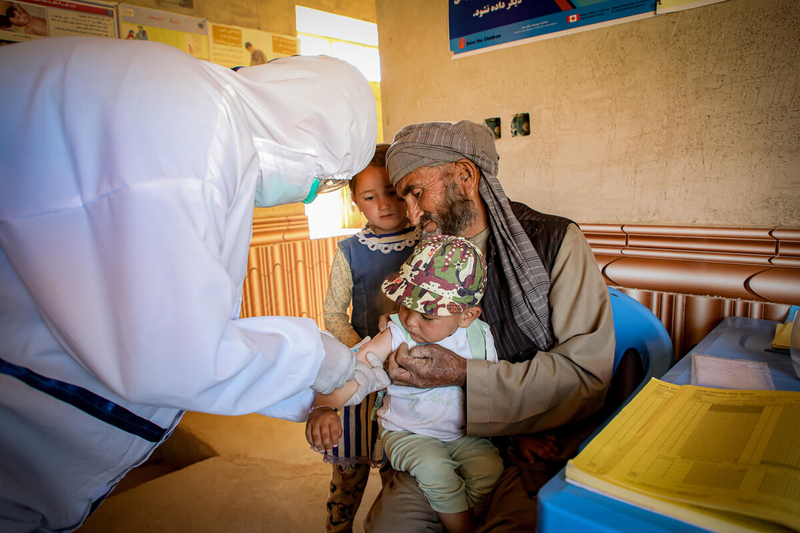
Faith leaders and community health workers must play a massive role in the global roll-out of a COVID-19 vaccine, a World Vision survey has revealed.
One year on from the World Health Organisation first reporting an outbreak of a new coronavirus in China, new Barrier Analysis studies by World Vision are showing just how important religious leaders' endorsements of the COVID-19 vaccine will be to efforts to contain and roll back the pandemic.
"The COVID-19 vaccine brings a palpable sense of hope for struggling children and their families, whose lives have been torn apart by the aftershocks from this dreadful pandemic," said World Vision International CEO and President Andrew Morley.
"Education has been put on hold, health services strained to breaking point, livelihoods ruined, with vulnerable children facing new threats of violence as those who protect them succumb to this terrible disease.
"As we have seen time and again, faith leaders play a crucial role in vaccine rollout. They work with communities to involve them in the process, ensuring they are distributed fairly and fully accepted."
The aid agency did studies in selected communities in Bangladesh and found 100 per cent of those surveyed who intend to get a vaccine agreed with the statement: "Most of my community leaders and religious leaders would want me to get a COVID-19 vaccine."
By contrast only 38 per cent of those who intend to refuse a vaccine ('non-accepters') agreed with that statement.
Vaccine 'accepters' were also 7.1 times more likely (than non-accepters) to say they would be very likely to get a vaccine if a health worker recommended it to them.
The study also found that non-accepters were almost 10 times more likely than accepters to strongly agree with the statement: "Whether I get COVID-19 or not is purely a matter of God's will or chance."
They were also 6.8 times more likely to say they did not trust the COVID-19 vaccines at all, and 11 times more likely to say they did not know if getting vaccinated would protect them.
World Vision also carried out studies in Myanmar and found that the factors driving COVID-19 vaccine acceptance in communities there were similar in some aspects. 'Accepters' were 3.7 times more likely to say that they would be very likely to get a vaccine if a health worker recommended it to them, and more likely to believe that most of their community and religious leaders will want them to get the vaccine (100 per cent of acceptors vs. 80 per cent of non-accepters).
These findings suggest that endorsement by religious leaders and community health workers is vital for community-level acceptance, the promotion of accurate health information, and to help to ensure high-level vaccination uptake. World Vision currently works with a network of more than 184,000 community health workers and has engaged with more than 210,000 faith leaders globally to combat the spread of the virus, especially at grassroots level.
"I met many faith leaders last year in the eastern Democratic Republic of Congo involved in community acceptance of the Ebola vaccine, and it is clear their work saves countless lives," Mr Morley said.
Studies conducted in India, Kenya, and Tanzania are currently analysing their results, which will be published at the end of the month. These findings will inform the focus of World Vision's work in supporting vaccine roll-out and are being made available to the WHO, GAVI, and UNICEF.
"We have extensive experience partnering with children, communities and leaders to implement vaccine solutions around the world," Mr Morley said. "We helped ensure more than 130,000 people in four countries were vaccinated, using a two-dose regimen, against Ebola in the West Africa and Democratic Republic of Congo outbreaks, and have been heavily involved in Polio eradication efforts for more than 20 years."
This expertise includes Barrier Analysis surveys, developed by World Vision's Tom Davis, to assess reasons for resistance to health programmes.
"While a vaccine represents a scientific triumph, no one can claim victory until it reaches the most vulnerable communities right across the globe," Mr Morley said. "We challenge the world to be fair in vaccine distribution. Protection from this virus should not be linked to economic power – it should be fair and equitable.
"COVID-19 vaccines will be a lifeline for vulnerable children all over the world, enabling them once again to reach their God-given potential – but only if they reach the vulnerable communities who need them most."






